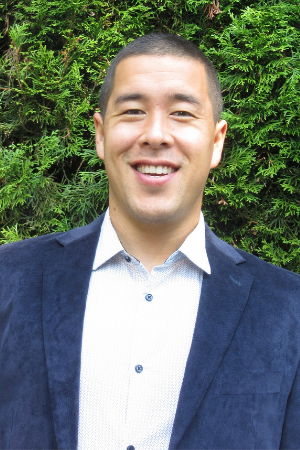Theology and Religion PhD student Matthew Hama is undertaking his research by distance learning. He says that the University of Birmingham have “taken the time to think through the unique challenges and hurdles confronted by students living away from the campus”. We find out more about his experience as postgraduate researcher studying by distance learning.
 Why did you choose to study for a PhD in Theology and Religion?
Why did you choose to study for a PhD in Theology and Religion?
“A PhD in Theology and Religion provides a unique opportunity to explore how individuals, groups, and cultures of the past made sense of the world around them and understood their role within it. I get excited about how this field of study naturally engages the intersections of worldview, existence and questions of what it means to be human. I’m grateful for how this discipline invites interaction and dialogue with others in order to reflect on the past, thoughtfully engage in the present, and consider our different roles in positively shaping the future.“
Why did you choose to undertake research at the University of Birmingham?
“As a leading research institution that boasts some of the foremost scholars in my field, I was immediately intrigued by the possibility of studying at the University of Birmingham. Hailing from Canada, I was also deeply impressed by the robust and well-established distance learning program that the university had in place. Any concerns about stepping into a distance PhD program were quickly allayed as I could see that they had taken the time to think through the unique challenges and hurdles confronted by students living away from the campus."
What are the best things about your course?
“Beyond the quality of the university as a whole, which has a rich history of academic excellence, the best part of my experience has been without a doubt the interactions I’ve had my supervisors, program colleagues, and the wider faculty and staff at the university. My supervisors continually demonstrate what it looks like to be excellent scholars, mentors, and colleagues. My program colleagues provide a rich sense of community and comradery. And the wider faculty and staff go above and beyond to support in running monthly seminars, sharing insights from their academic journeys, and providing incredible residential experiences on my visits to campus.”
What is life like as a researcher at the University of Birmingham?
“Life as a researcher is really exciting. It’s fun to be curious and to have concentrated time to explore a research topic. One of the best pieces of advice I’ve ever received related to my research, was to treat it like a job. This keeps it focused and sustainable. A typical day for me looks like sitting down at my desk and working hard for eight hours a day, five days a week. Then I go, and I enjoy time with my family. I get outside. I go hiking. I go fishing. I work really hard and rest well."
What support have you received during your PhD?
"The famous proverb ‘It takes a village to raise a child’, often feels equally applicable to a PhD. The support I’ve received thus far in my academic career is extensive. My supervisors, colleagues, university staff and faculty, family, friends, and of course my wife have all been of tremendous support. I’m also incredibly grateful to have received very generous funding from the Canadian Social Sciences and Humanities Research Council, which has played a critical role in my PhD journey. Although the work does ultimately come down to me, I’m deeply thankful for a wider support network, without which I would not be able to undertake this extensive project."
Outside of your research, what experience have you gained and how will it help you in the future?
“Beyond my research I have had the opportunity to guest lecture, attend workshops, seminars, and conferences, and collaborate on additional research projects. This exposure to wider research cultures, unique learning environments, and differing approaches to pedagogy, has been and continues to be deeply formative in my overall development as an early career scholar. I have also had opportunities to engage in public sector events. Mobilising and thinking about my research beyond the walls of the academy challenges me to new ways of thinking and encourages me to consider how my work can positively impact society.”
Find out more about our PhD Theology and Religion programme over on our course pages.